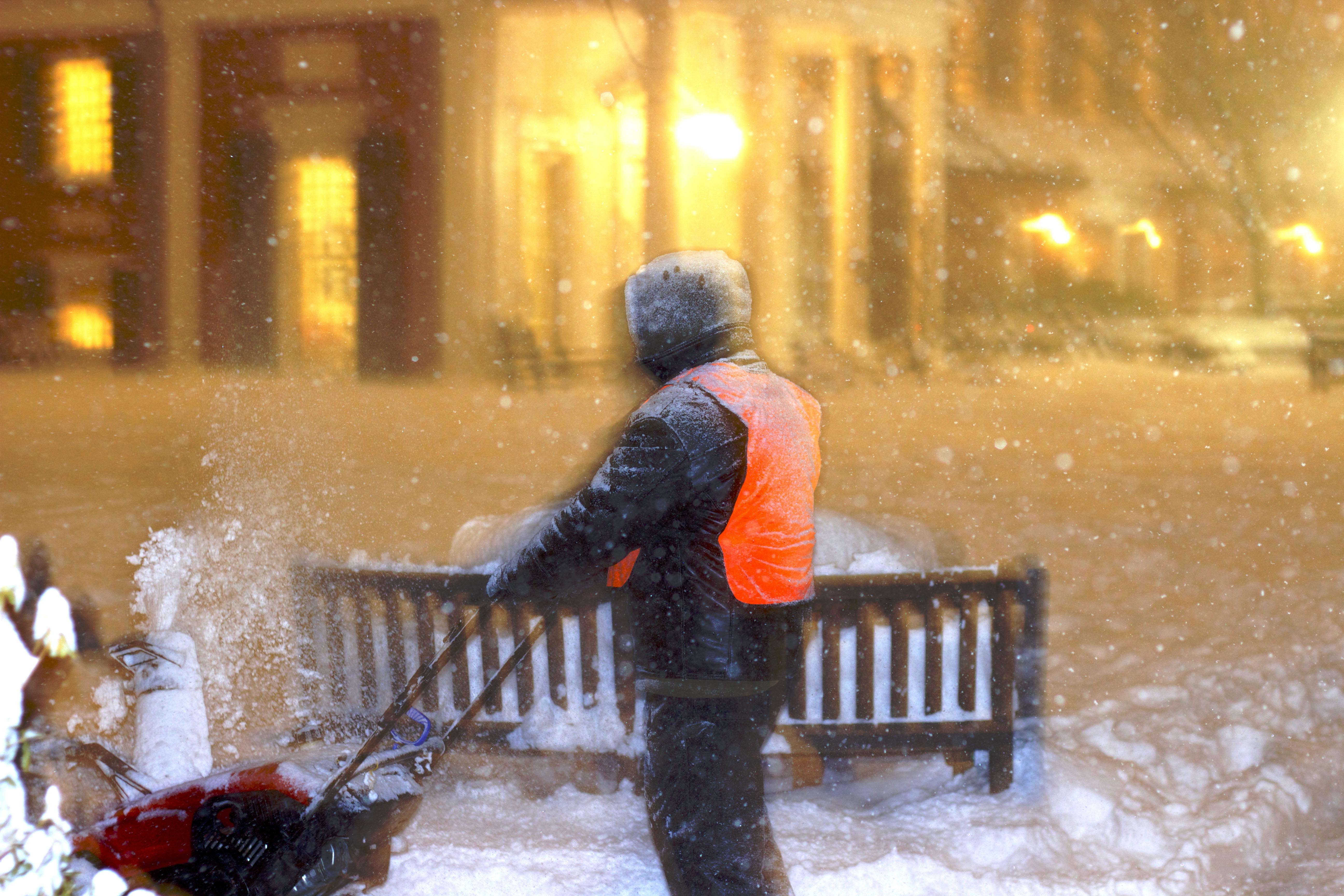
Marco Olivar leaned on his shovel outside an entryway in Timothy Dwight on Saturday, standing with a half dozen fellow snow shovelers. It was 7 p.m., the snow was only inches deep, and the night was far from over.
When snowstorms come to New Haven, Yale hires a veritable army of workers to shovel, plow, salt and sand the campus at any time until the snow stops. These workers are not full-time Yale employees, but are hired from a variety of outside sources — often contractors — said Senior Advisor to the President Martha Highsmith. Most of the 10 workers interviewed during the storm Saturday night speak only Spanish, and nearly all live outside the city.
“We come from all over,” said Olivar, who was called to work shortly before the snow began to fall Saturday morning. The work done by this seasonal snow-shoveling brigade requires almost nonstop shoveling. The workers get paid by the hour, Olivar said, adding that he and his fellow workers could expect to be out of New Haven as quickly as the passing storm.
One shoveler, who asked to remain anonymous for fear of losing his job, said he found his way to Yale by word-of-mouth. Then, growing visibly uncomfortable, he gestured to a man standing on a distant embankment. He explained that his boss stood watch at all times and that he needed to keep shoveling, so he could not provide additional details on his background or hourly wage. Instead, he pushed on into the snow.
Highsmith said the employment of emergency snow shovelers is coordinated by the Yale Office of Facilities and built into the University budget each year. Speaking hypothetically, she said facilities could see a budget surplus in the aftermath of a light winter.
For Yale staff members, Highsmith said people employed in areas of “critical function” are required to come to work regardless of severe weather conditions. In an email to the Yale community during a severe snowstorm last January, Highsmith said these areas include staff “responsible for life, health, safety, patient care, clinical operations and security.”
Several Berkeley dining hall staff members interviewed said they made the drive home on Saturday night with little trouble, but reminisced about last year’s mammoth storm when classes were cancelled and dining hall staff slept in the residential colleges.
Highsmith said that critical employees understand that their responsibility to come to work during severe weather is part of their job. She also said staff members employed outside of those areas can stay home during storms at the cost of a personal day and payment.
“If people are not working in those critical-function areas, their supervisors will allow them to take the day off,” Highsmith said. “For example, if I was scheduled to work in the library and I didn’t need to be there according to my supervisor, I could take the day off. But that would count as a personal day and I would not be paid for it.”
One dining hall worker, who asked to remain anonymous to maintain her privacy, said the decision to stay home is both complex and emotional. She explained that she and her peers do whatever they can to avoid missing work because they feel they have a responsibility to serve their students.
So, despite having had to walk home in blizzard conditions, the dining hall worker said she completed her Saturday shift.
“I walked home and it was so hard — it was just terrible outside,” she said. “We have the option not to come but we know that you guys need to eat, so it would have been nice if Yale had given us some sort of transportation assistance. They had it last year but didn’t this year.”
Initial estimates indicate that Winter Storm Jonas caused $850 million in damages. At least 48 people died from the storm nationwide







